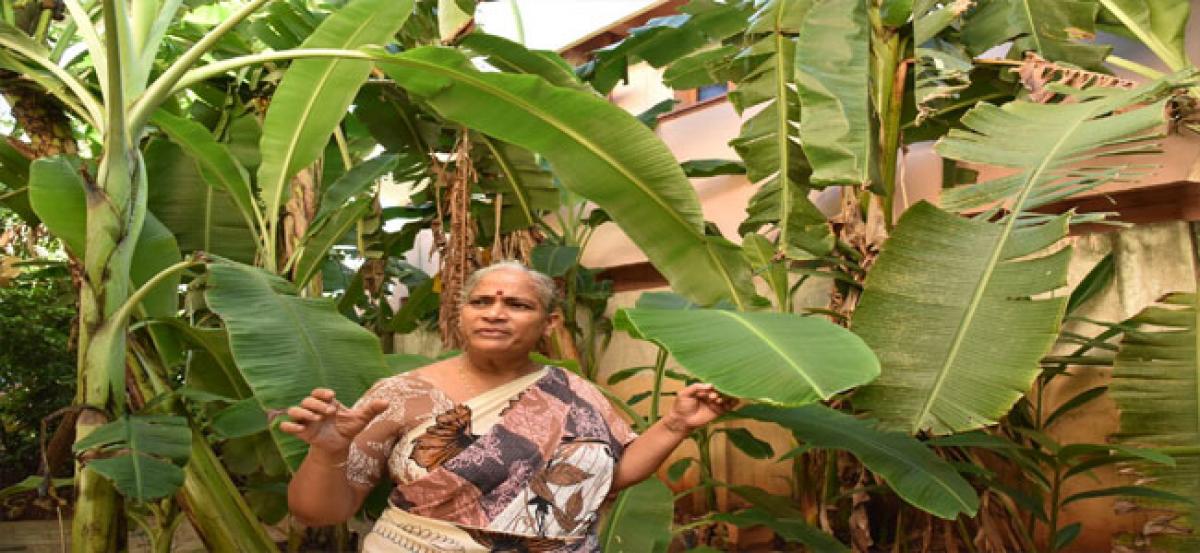Live
- Alia Bhatt captures attention in white
- Varun Dhawan talks about ‘Baby John’
- ‘Moonwalk’ trailer promises a quirky heist, love, and loyalty
- Combat leaf spot disease
- Ahsaas Channaopens up about her complex character in ‘Mismatched 3’
- Radhika Apte welcomes first child, shares heartfelt post
- Jacqueline dazzles at Da-Bangg Reloaded concert
- Time to boost measures to prevent drowning, save children: WHO
- TDP achieves milestone with 73 lakhs membership registration, says Chandrababu
- South Korea: Main Oppn hails Yoon's impeachment motion passage as 'victory for people, democracy'
Just In

\"If all these morning walkers turn into pedestrians that would cut down pollution in Vizag,\" said a few friends whiling away their time near the sea shore at dawn on a weekday. Apparently, they were hinting that many of the working professionals use vehicles more instead of walking. This may be true, but not in the case of Professor Manjulatha of Zoology department in Andhra University.
Visakhapatnam: "If all these morning walkers turn into pedestrians that would cut down pollution in Vizag," said a few friends whiling away their time near the sea shore at dawn on a weekday. Apparently, they were hinting that many of the working professionals use vehicles more instead of walking. This may be true, but not in the case of Professor Manjulatha of Zoology department in Andhra University.
For this Professor, environment conservation begins with herself. Being cautious about her carbon foot print, she walks four km daily from her home to office and vice-versa. Of course, the Professor has many ecological traits which were imbibed after attending a refresher course at AU Environmental Sciences department conducted by Prof E Udaya Bhaskara Reddi in mid-1990's.
"The course brought a paradigm shift in my thinking and understanding environment. From then on, I stopped using refrigerator and built our home in just 120 yards of the available 300 yards at Maddilapalem in the city," she says as the sound of chirping birds is heard from the house garden. ‘Several environmental campaigns run by green activist JV Ratnam gave chance for me to engage with the issue’, she adds.
Interestingly, a family of three - Manjulatha, her husband and 19 year-old daughter - avail of only one cooking gas cylinder in three to four months. "Our relatives wonder about this. But it is possible. Often, I share my quota of gas cylinders with neighbours as they finish it off for 15 days," an avowed atheist asserts.
Making it more captivating, their two storey house building does not have a bore well and they make use of only municipal water tap connection. "I learnt the impact of drilling a borewell and we decided not to dig one. One of the reasons for not renting out our top floor is this," reasons the professor adding that she was called leftist by many for her conservation practises.
"Because my father was a trade union leader, it became easy to brand me. But I strongly believe change starts with individuals. There may be eco-friendly technologies, but living a simple life with less use of energy is the best method for saving environment," she points out.
"Also, the world is heading towards collapse of human civilisation due to global warming and climate change. The time is ticking. We must act," the professor reiterates.
By Y Abhishek Paul

© 2024 Hyderabad Media House Limited/The Hans India. All rights reserved. Powered by hocalwire.com







